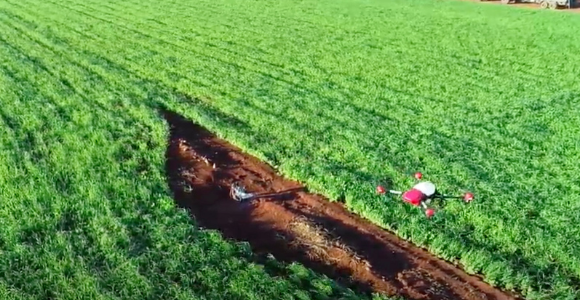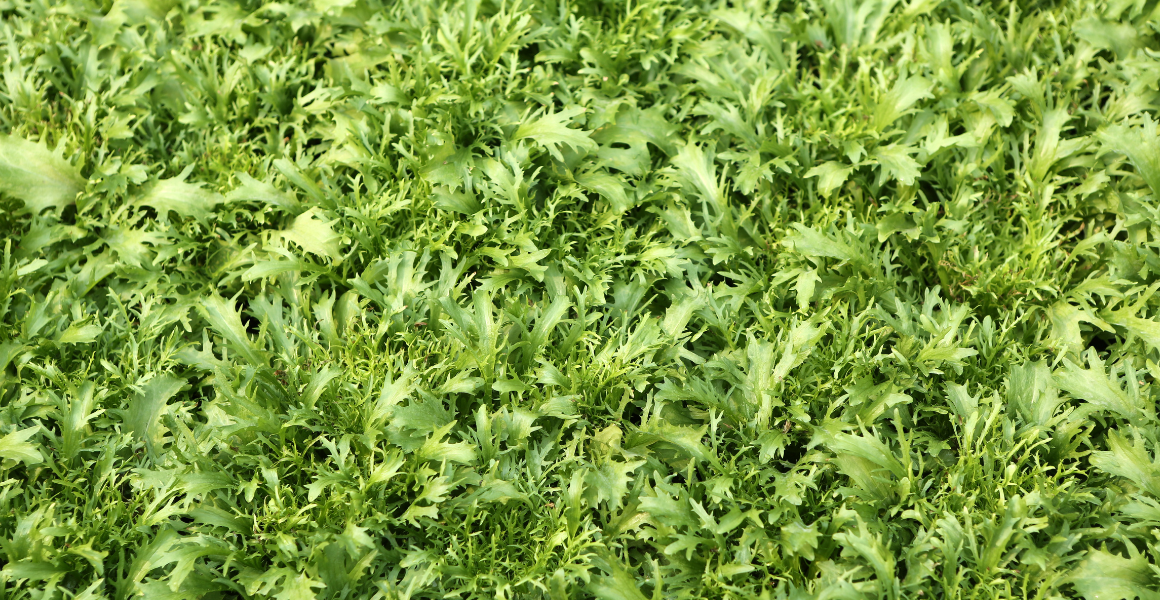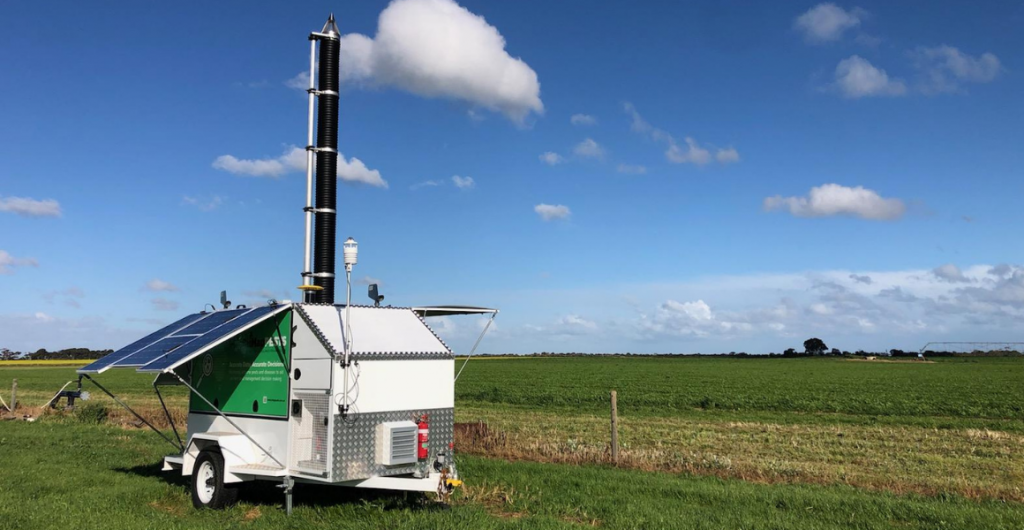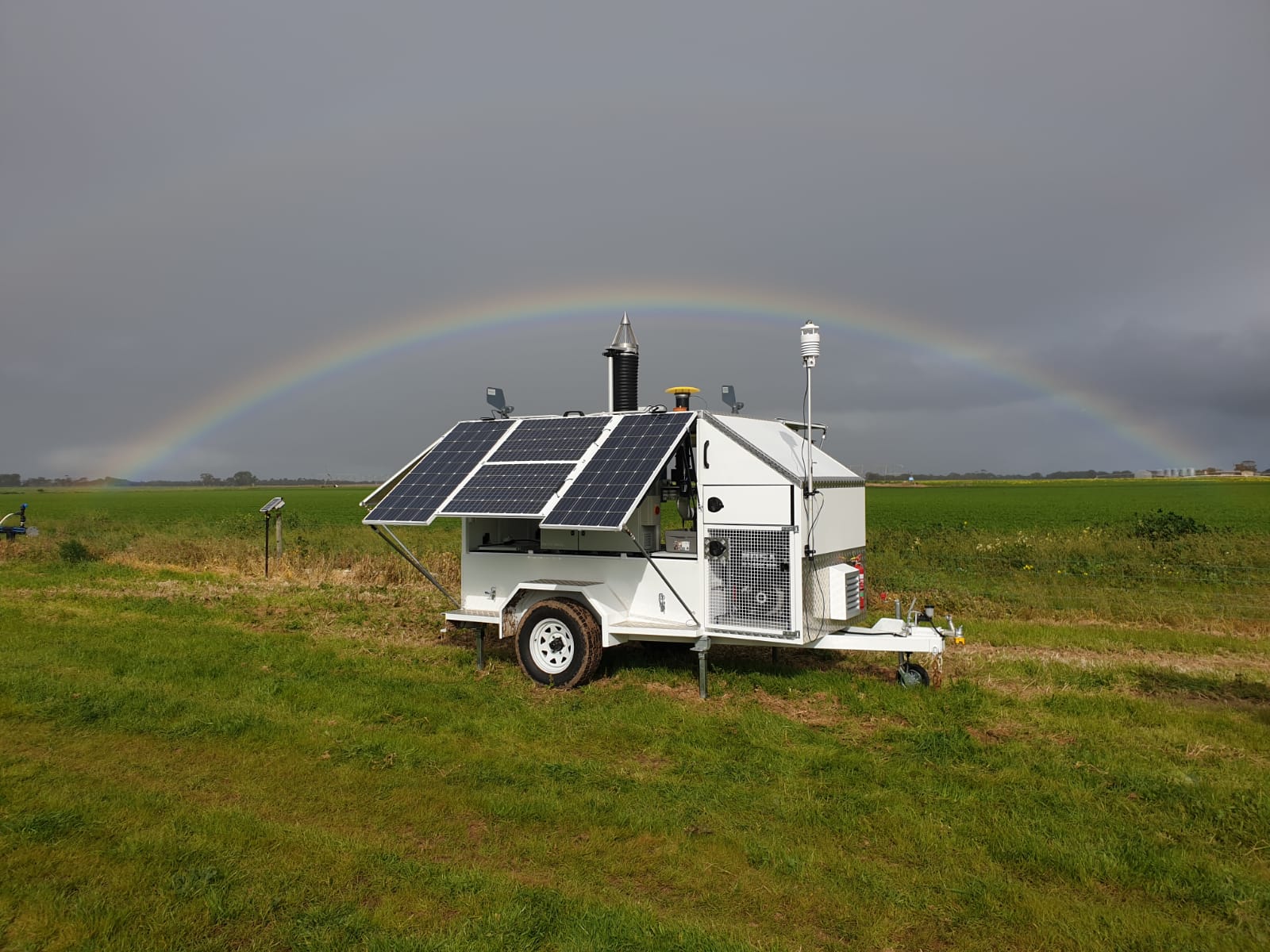
Drone applications make light work of tough jobs in Bundaberg
6 October 2020
EGVID 2020 | Fairbanks seeds: Rocket
6 October 2020The smart surveillance initiative, iMapPESTS, aims to report accurate and timely pest and pathogen data to industry to support pest management on-farm.
With mobile surveillance units, or ‘Sentinels’, now actively monitoring and watching over crops in the growing regions surrounding Adelaide, the project is generating data on airborne pests and disease-causing fungi.
Sentinel 2 recently completed a trial within a vegetable growing setting, a first for the proof-of-concept project.
From July – September, Sentinel 2 monitored pests and diseases beside a crop of Brussels sprouts in Langhorne Creek, South Australia.
The region, famed for wine production, features a diverse range of crops, with carrots and potatoes grown near the trial site. The timing of the surveillance activities enabled us to capture the gradual increase in pest and pathogens in the region as temperatures increased moving into spring.

Industry members are encouraged to see what is being trapped during these trials and provide feedback on how they might find the information useful.
The iMapPESTS team engaged with local agronomists and researchers to provide an overview of the information gathered during the trial. The presence and prevalence of high priority targets, such green peach aphid, western flower thrips and Sclerotinia white rot, are reported via the website.
Visitors to the site can further interrogate the surveillance data on our dashboard by selecting their target of interest to see how the daily numbers are tracking against weather.
Industry members are encouraged to see what is being trapped during these trials and provide feedback on how they might find the information useful.
AUSVEG is keen to hear what you’re seeing in crop and how that compares with Sentinel trap samples.
Growers and agronomists who wish to be involved or kept up-to-date with the latest developments in the iMapPESTS program can register their interest either through the website or via iMapPESTS Engagement & Adoption coordinator, Shakira Johnson at shakira.johnson@ausveg.com.au.
Sentinel 2 is currently stationed in Carey Gully in the Adelaide Hills for further trials in horticulture.
Other Sentinels will be deployed in McLaren Vale, Virginia, the Barossa, and the Riverlands over the remainder of the year.
To learn more about the iMapPESTS program, read this article featured in Vegetables Australia – Spring 2020!
These sentinels are state-of-the-art mobile surveillance units, and are a key output from the multimillion-dollar, cross-industry iMapPESTS investment led by Hort Innovation, with funding from the Australian Government as part of its Rural R&D for Profit program.

